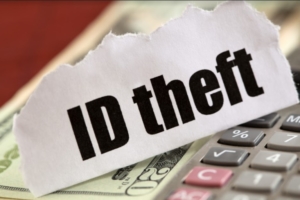Freeze Your Credit Now, Before it is Too Late!
Do you know what a credit freeze is? It is an action that you can take to lock your credit report down. A lender will be unable to see your credit score, which means that your credit rating and Social Security number will be useless. In other words, they can’t tell if you are a lending risk.
 When an ID thief can get access to your Social Security number, they can also apply for credit in your name. However, if the credit file is frozen, the bad guys cannot access it. When you freeze your credit, the file is not accessible.
When an ID thief can get access to your Social Security number, they can also apply for credit in your name. However, if the credit file is frozen, the bad guys cannot access it. When you freeze your credit, the file is not accessible.
To gain access to your frozen credit, such as when you want to apply for a line of credit, you have to unfreeze it by using a PIN number given to you by the credit bureau. That’s it. Keep in mind that freezing a credit report does not affect any lines of credit that you have open, and the process is free for those who have become victims of ID theft. However, you can pay a small fee to TransUnion, Experian, and Equifax, the three main credit reporting bureaus, and you can freeze your credit.
What Specifically does a Freeze do?
A credit freeze protect you from new account fraud. It prevents criminals from opening up new lines of credit, new accounts that require a credit check.
When is it a Good Idea to Get a Credit Freeze?
If you are someone who has had their identity stolen, you should consider freezing your credit. If you have a Social Security number, you are considered a target, so you can make it useless to thieves, even if they get it, they cannot use it to open a new account under your name.
What to Know Before You Freeze Your Credit
Before doing a credit freeze, you don’t have to know too much. Just do it. Your credit will be frozen from any and all credit application. This means that lenders, banks, and retailers have spent millions to stop it. Why? Because they cannot instantly approve a line of credit.
How Much Does a Credit Freeze Cost?
A credit freeze is free. There used to be a charge, but a law was passed in
September 2018 making it free for everybody to freeze it and unfreeze it. So just do it
Is it an Inconvenience to Freeze Your Credit?
Freezing your credit is not inconvenient. It only takes a few minutes to freeze and unfreeze your credit file. Of course, you must unfreeze it before you can apply for credit. This means that you have to take a little time to let the thaw pass, but usually that takes only a couple of minutes. This makes the credit freeze more secure and helps to keep you safe.
Does a Credit Freeze Harm Your Credit?
A credit freeze does not hurt your credit in any way. Plus, if you have an existing creditor, they can still do “soft” checks on your credit report.
Does a Fraud Alert Do the Same as a Freeze?
No. A fraud alert only lasts for 1 year, and scammer can still access your credit file and they can still apply for new credit, even if an alert is in place. The creditor might know that you had your ID stolen, but they can still issue credit. A fraud alert will notify lenders that something might be amiss with your credit, but that’s it.
What does a Freeze not do?
A freeze does not protect you from credit card fraud, bank account take-over, if you lose your wallet a freeze won’t help you, it doesn’t protect you from tax related identity theft, criminal related identified, social Security fraud, and many other forms of account take over. Again, specifically it prevents “new account fraud”
If I have a Freeze do I need Identity Theft Protection?
Security is all about “layers of protection” and a freeze only protects you from certain things, whereas identity theft protection will mitigate lots of other forms of fraud. While identity theft protection services don’t protect you from things like tax related identity theft or even medical related fraud, the identity theft protection “fraud resolution experts” and the insurance that comes along with identity theft protection services will generally set a victim straight and fix those forms of fraud.
You can Freeze Your Credit, Here:
Freeze Credit with Equifax.
Freeze Credit with Experian.
Freeze Credit with TransUnion.
ROBERT SICILIANO CSP, is a #1 Best Selling Amazon author, CEO of CreditParent.com, the architect of the CSI Protection certification; a Cyber Social and Identity and Personal Protection security awareness training program.


 There is really no difference than labeling a food product as being “natural,” even though it is not “organic.” In the best case, the info is incorrect, and at the worst, it is miss leading and an outright lie.
There is really no difference than labeling a food product as being “natural,” even though it is not “organic.” In the best case, the info is incorrect, and at the worst, it is miss leading and an outright lie. Your Social Security number is a form of verification, authentication, and it is even used as a password. Simply having it, simply knowing it, and entering it, verifies and authenticates its holder. However, it shouldn’t be like that at all.
Your Social Security number is a form of verification, authentication, and it is even used as a password. Simply having it, simply knowing it, and entering it, verifies and authenticates its holder. However, it shouldn’t be like that at all. Here is the situation. You cannot possibly protect yourself from every type of identity theft out there, and when you can, it really requires a lot of work. No matter what, it’s going to be time-consuming, can cost you money, and even make you pretty anxious.
Here is the situation. You cannot possibly protect yourself from every type of identity theft out there, and when you can, it really requires a lot of work. No matter what, it’s going to be time-consuming, can cost you money, and even make you pretty anxious.























